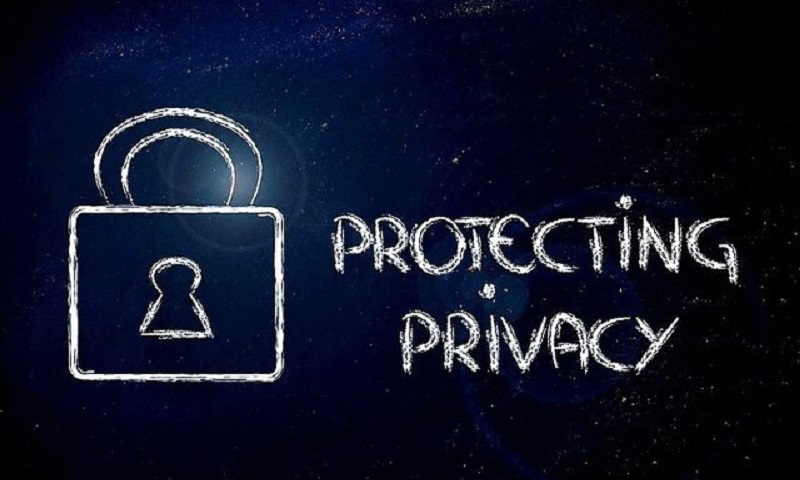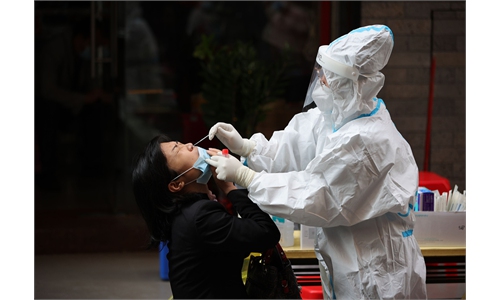Chinese netizens applaud decision by Beijing, Shanghai to exclude patients' personal information while reporting COVID-19 cases

Photo: IC
To protect individual privacy, the local health authorities in Beijing and Shanghai have released the COVID-19 epidemiological surveys without the gender, age and other personal information of confirmed patients, only publishing information about the areas and locations where they had visited, a move widely praised by Chinese netizens.
Since Saturday, the official reports of new confirmed COVID-19 cases in Beijing have been following the policy of "only mentioning the location, not the person," after the municipality for the first time did not disclose the age and gender of the two new locally confirmed cases on December 23.
At the same time, the reports on the areas and sites associated with confirmed cases released by the Shanghai Municipal Health Commission also excluded the work, daily life and other information of the COVID-19 patients on Saturday.
This cautious approach of the authorities has sparked heated discussion on Chinese social media Sina Weibo. Many Chinese netizens pointed out it was an efficient way to display effective information and reassure many people's concerns about individual privacy protection in the epidemic prevention and control work.
A typical comment reads, "Compared with publicizing the sex, age, and profession of the infected person, which only increases their psychological pressure, this kind of reporting that does not expose privacy is worth advocating."
The society-wide discussion online on how to scientifically and reasonably release the reports of the epidemiological investigations shows Chinese people are more concerned about whether the individual privacy is protected in the current epidemic prevention and control work.
According to Xinhua News Agency, at least 10 epidemiological investigation reports have been leaked in Shijiazhuang, Chengdu, Shenyang, Hangzhou and other cities in China since last November, causing secondary damage to the COVID-19 patients and negatively affecting China's epidemic prevention and control work.
The epidemiological information is leaked mainly through online social media platforms, in situations such as some staff engaged in epidemiological surveys privately sharing the epidemiological report on WeChat groups of their relatives and friends, or some netizens spreading the information actively on social networks based on personal information clues disclosed by the authorities out of curiosity, desire to seek attention or self-belief of "just behavior," which have repeatedly led to cyber-violence with patients' private lives frequently targeted, Xinhua reported.
"What was worse than being infected with COVID-19 was that from the moment I received the positive virus test report, my phone didn't stop ringing and my personal information was posted online as if I was a wanted criminal," Zhang Peng (pseudonym), a truck driver from Gaocheng district, the epicenter of Shijiazhuang, North China's Hebei Province, told the Global Times on Sunday.
Although the official notice released by the Hebei Provincial Health Commission only revealed Zhang's gender, age, and movement trajectory in the 21 days before diagnosis, posts and videos about his name, ID number, mobile phone number, and license plate number quickly spread to WeChat groups of truckers across the country.
In the countless calls Zhang received from strangers, only a few people claimed to be disease control personnel, and many more were unidentified people who hung up after a few words.
"In order to effectively control the outbreak, we require confirmed patients and their close contacts to report the necessary personal information, but these people should not be subject to the undue attention and negative scrutiny," a Beijing-based staff member surnamed Sun, who is in charge of epidemiological investigations, told the Global Times on Sunday.
Sun noted that currently local authorities in many places have begun to strictly regulate the work content and process of the collector of the epidemiological information to prevent the recurrence of information leakage. He also called on law enforcement departments to further strictly penalize the violation of individual privacy on the Internet under the pretext of epidemic prevention and control.
"Scientifically, accurately and reasonably releasing epidemiological investigation reports is not only related to the overall situation of anti-epidemic work, but also related to the dignity and privacy of individuals," Sun added.


